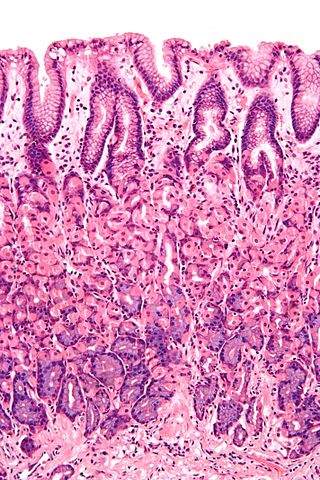
New research conducted by the Perelman School of Medicine at the University of Pennsylvania has found the composition of bacteria in the gastrointestinal tract may be able to help predict the efficacy of personalised cellular therapies in cancer patients.
The team was led by research assistant professor of radiation oncology and obstetrics/gynaecology at the university Dr Andrea Facciabene. The team found that altering the natural makeup of gut bacteria and antibiotic treatment had a significant effect on the efficacy of adoptive T cell therapy (ACT) in cancerous murine (rodent) models.

Discover B2B Marketing That Performs
Combine business intelligence and editorial excellence to reach engaged professionals across 36 leading media platforms.
The team also found that faecal transplants, which are increasingly used for treating recurrent C. difficile colitis, impacted the efficacy of ACT in different strains of lab rodents.
ACT stimulates the patient’s own immune system to fight diseases such as cancer. T cells are collected from a patient and grown in the lab to increase the number of tumour-killing T cells. These are then re-transplanted in the patient as reinforcements to their natural anti-tumour immune response.
Study co-author Dr Mireia Uribe-Herranz conducted a series of experiments on mice obtained from Jackson Laboratory and Harlan Laboratories. The genetically-identical animals carry different microbiota, and when ACT was performed on them the therapy’s impact was found to be non-identical. The rodents from Harlan demonstrated a much stronger anti-tumour effect than those from Jackson.
Using the antibiotic vancomycin, the team reduced gram-positive bacteria within the gut and found ACT efficacy increased, while anti-tumour response and overall remission rate in less-responsive mice similarly rose. Such improvements were linked to an increase in systemic dendritic cells, which in turn caused interleukin 12 (IL-12) levels to rise and transferred T cells to expand and maintain their anti-tumour effects.

US Tariffs are shifting - will you react or anticipate?
Don’t let policy changes catch you off guard. Stay proactive with real-time data and expert analysis.
By GlobalDataTo better discern the relationship between gut bacteria and ACT efficacy, the team transplanted faecal microbiota from the Jackson mice to those from Harlan. The results demonstrated that the the recipient mouse model copied the anti-tumour response and tumour growth of the donor.
“This means that the microbiota-dependent response to ACT was successfully transferred between mice, and that modulation with specific antibiotics can be used to increase ACT efficacy,” Facciabene said.
The researchers’ findings demonstrate the importance of gut microbiota in the antitumor effectiveness of ACT, and suggest that the method could be applied to control gut microbiome populations and improve the therapy itself.
“We are just at the beginning of our research,” Facciabene told Drug Development Technology. “It’s all about understanding what the interactions are between the gut microbiota and our body, not only from the point of view of metabolomes for digestion but also several other implications.
“It’s called the forgotten organ – there is still a lot to learn and it’s an extremely complex micro-environment.”
The team intends to move studies on to examine the relationship between the gut microbiome and CAR T therapy.
“I am expanding my findings on to CAR T therapy where T-cells are engineered before being reinjected into patients,” Facciabene told Drug Development Technology. “We are also expanding our work to humans, studying how the different gut microbiota of different people will impact the therapy in humans.”
The research was supported by Be the Difference Foundation, Teal Tea Foundation, and the Pennsylvania Department of Health, with findings published in the Journal of Clinical Investigation Insights.
This piece was updated on 6 April to include new comments from Dr Andrea Facciabene





